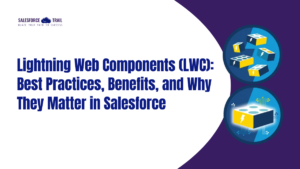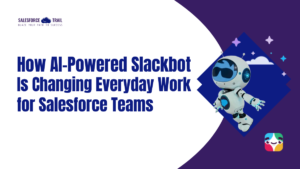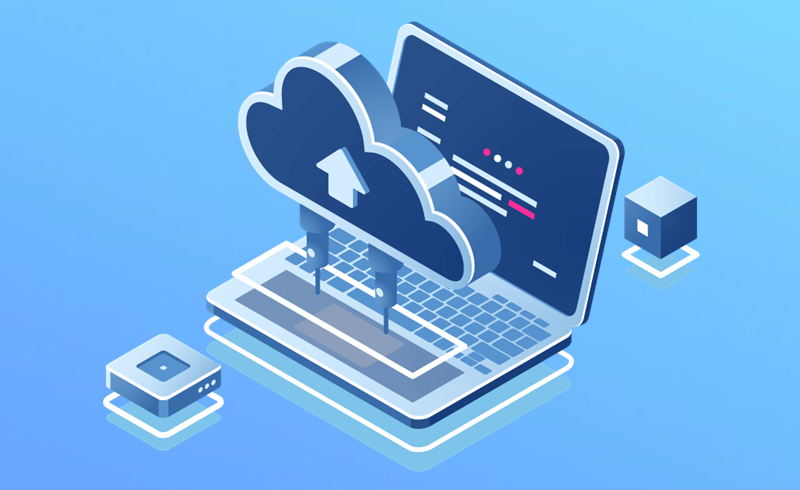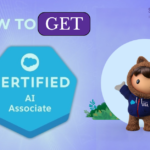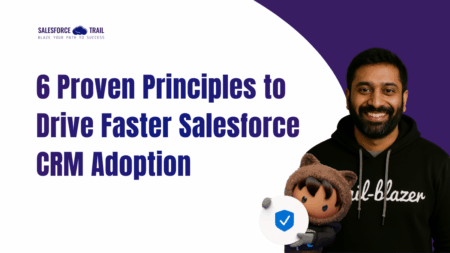In the unfolding age of digitalization, companies are going after technology to make their operations more efficient and improve performance, which leads to growth. Salesforce launched a solution but one common question remains, “Salesforce apps Vs. Cloud Choosing the best solution for your business? This guide explains the difference between Salesforce Apps and Salesforce Cloud to help you choose which is more applicable to your business.
Understanding the Salesforce Apps and Clouds
Before Comparing Salesforce Apps vs Clouds, let’s compare each term:
Salesforce-based Apps: These are not the ones that can be built from scratch, in turn, it is developing and deploying an application on the salesforce platform (basically a component/grouping of sales force CRM i.e. Customer relations management). These are business unit-specific solutions that are tailored to individual needs. Examples include:
Salesforce Apps
- Sales Cloud: It organizes sales activities, keeps track of customer relationships, and increases efficiency in automating repetitive tasks.
- Service Cloud: It has features for case handling, knowledge sharing, and customer support thus covering all aspects of customer service provision.
- Marketing Cloud: Offers marketing automation, campaign management & customer engagement.
Salesforce Cloud
Salesforce provides a category of cloud services called Salesforce Cloud which surrounds the ML platform’s basic architecture and data storage & processing in the cloud. These include:
- Salesforce Platform: This is a powerful environment for creating custom applications that can be built and deployed.
- Salesforce Data Cloud: It takes care of the safekeeping and storing of high volumes of data.
- Salesforce Integration Cloud: It helps to make integration with third-party applications and services flow smoothly
Advantages and Limitations of Salesforce Apps
Advantages:
Quick, and easy to use, you can scale it up and install the app within hours or days.
- Specific features: Apps are usually tailored to meet specific user requirements or integrate with certain third-party services
- Cheaper for small needs: Most applications have a simple monthly fee which is good for smaller companies.
- Try before you buy: This means that many developers make the app available at no cost for users during the trial period
Limitations:
- Limited personalization options: Few other apps might have customized menu tabs though they may not be as flexible as those provided by tailor-made solutions
- App sprawl: If you continue installing applications from now, it can lead to app sprawl and cause performance issues inevitably.
- Recurring charges: You can easily pay monthly fees to several apps.
Advantages and Limitations of Salesforce Clouds
Advantages:
- Comprehensive resolutions: As wide as the ocean is, Every Cloud has a broad range of tools, and it’s purposefully made to be mixable.
- Scalability: It is so easy to use cloud solutions – it stretches from small teams to big corporations.
- Superior integration: Native Salesforce features tend to link up with one another better than many third-party apps.
- Platform updates: Salesforce will update new functionality three times a year by default, as this is very frequent.
Limitations:
- Higher initial cost: Compared to individual applications, cloud licenses have higher costs at first
- Higher learning curve: Various functionalities within the platform can sometimes take for groups to leverage effectively.
- Overkill: Many parts may not even be applied in a small company that orders an integrated Cloud solution
Guide to Choose the Best: Salesforce Apps vs Cloud
Step 1: Market Demand Evaluation
First, evaluate your business needs. Find out which of your processes need to be enhanced and expanded on. Decide if this problem can be solved with pre-built applications or will require specific development.
Step 2: Evaluate Your Budget
Look for a solution that is within your budget for implementation and maintenance. Compare the costs of building apps on Salesforce Cloud versus using Salesforce Apps.
Step 3: Implementation Time
Think how quickly you need this solution to start working Salesforce Apps have higher success rates off the shelf if an immediate deployment is required. If it’s a custom solution; expect much longer implementation times with Salesforce Cloud.
Step 4: Long-term goals
Long-term goals and plans for the company’s advancement are imperative. Imagine the solution when and how it will be able to scale along with your business If you’re going to scale enough that your needs probably will change significantly, then Salesforce Cloud scales better.
Step 5: Get Expert Advice
You could consult with Salesforce consultants or partners to determine what is right for your business. In doing that, you get their experience to bank on.
Salesforce Solutions Deployment Best Practice
- Have well-understood goals: Set out the intentions and the main results that show how carrying your plans will enable you to achieve them.
- Involve Stakeholders: At all times, engage them through relevant stages as possible, indicating what should be done to work with them
- Develop adoption: Prepare the training on how to get started and support users having built the solution so people can understand it.
- Optimize: Always watch how efficiently it works on the battlefield and optimize
Conclusion:
Salesforce Apps Vs Salesforce Cloud Which One to Choose? Your choice will be based on your business needs, budget, and future objectives. Salesforce Apps If you are looking for quick fixes without much effort, then Salesforce apps are the perfect choice for you or if you are interested in a tailored cloud-based solution that evolves as per demand, opt for Salesforce Cloud, it can be done after critically assessing your requirements and when you consult professionals also the ones that are going to help meet the goals outlined for the company.
MUST VISIT – MY BLOGS
- Mayank Sahuhttps://salesforcetrail.com/author/mayank-sahu/
- Mayank Sahuhttps://salesforcetrail.com/author/mayank-sahu/
- Mayank Sahuhttps://salesforcetrail.com/author/mayank-sahu/
- Mayank Sahuhttps://salesforcetrail.com/author/mayank-sahu/July 17, 2024
